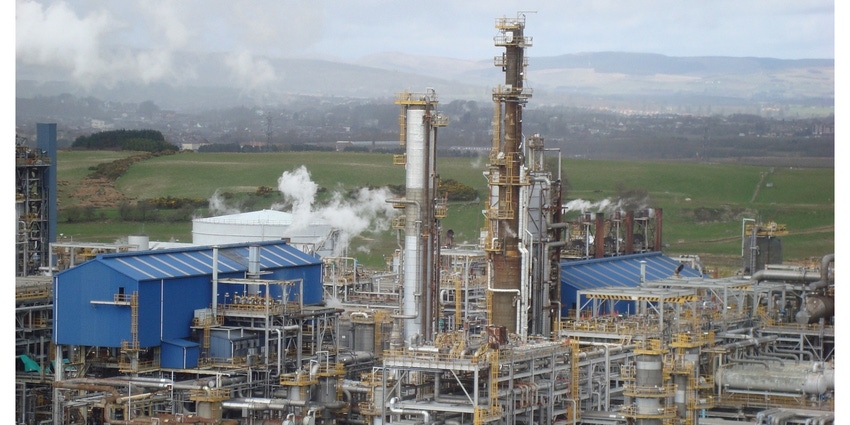January 29, 2021

Amit Bhowmik, head and process industry advisor, Tata Consultancy Services
Like most, the chemicals industry faced turbulence and intense headwinds this year due to the COVID-19 pandemic. From the global manufacturing and supply chain slowdown to the sudden shifts in demand, the US chemical outlet fell and in turn, the industry was left at a standstill. While global disruptions revealed the pitfalls the industry and economy have yet to overcome, it also encouraged the industry to undergo a long-awaited transformation in order to stay afloat during this era of economic instability. Manufacturers in the industry have been pushed to move supply chains forward by adopting the newest technologies in order to remain adaptive and resilient during such unprecedented times.
According to the American Chemistry Council’s (ACC) Year-End 2020 Chemical Industry Situation and Outlook, the basic chemicals production fell by 1.3%, while the total chemical production volume fell by 3.6% in 2020 alone. While COVID-19 certainly left a bruise, the ACC estimates the overall US economy will grow 3.7% in 2021, and the chemical production industry specifically will grow by 3.9%. Though these findings seem promising for a road to recovery, it is imperative that the chemicals and process industry reassess their approach to manufacturing to not only ensure a rebound from the COVID-19 pandemic, but also sustain a competitive edge through an approach that aligns to a common purpose amongst ecosystem partners and is cognitively driven by emerging technologies.
Dubbed “neural manufacturing,” this new approach distills the transformation journey many industry players were already on into a cohesive way of thinking by enabling organizations to have a responsive and adaptive value chain where every actor is able to meet group and individual goals through the application of connected capabilities.
What Exactly is Neural Manufacturing?
It is important to note that neural manufacturing is a way of thinking. Similar to a biological neural network, neural manufacturing works whereby each point within a supply chain works as a “node” that continuously receives and interprets data to meet an end goal through the use of advanced technologies such as automation, machine learning, cloud, AI, and IoT, thus providing visibility across the ecosystem and allowing partners in an ecosystem to collaborate in tandem, while meeting both individual and group goals in a connected and cognitive value chain.
Neural manufacturing transforms traditional manufacturing operations to a more distributed system where the physical factory plays a smaller and more singular role in a larger, more combined ecosystem. Essentially, this approach allows a 360-degree view of the supply chain from feedstock to the finished goods, making it ideal for the network to adapt to fast-changing conditions as in the case of leading chemical major by gaining end to end supply chain visibility across key accounts, they were able to improve business resilience and realized over $25 million of value improvement by avoiding multiple order changes and delivery delays.
Benefits of Neural Manufacturing
The autonomous connected capabilities linked to neural manufacturing help manufactures engage with smart assets in real time by eliminating friction and bringing efficiency and responsiveness to the supply chain altogether. The neural network enables a completely independent and automated process that creates more room for opportunity and enhanced safety measures for chemical and process manufacturers in this new era of remote work and social distancing.
For chemical manufacturers, leveraging process mining and data analytics to identify the root causes for delayed shipments with advanced technologies allow for end-to-end supply chain visibility and enhanced business resiliency by identifying opportunities for value improvement by reducing multiple order changes and delivery delays. In the case of process manufacturing, organizations can pinpoint actionable insights by connecting all data points to effectively analyze and address any withholding customer satisfaction issues. By doing this, businesses can cater to niche segments, improve the on-time-in-full (OTIF) metric, and improve schedule adherence for key customers.
By implementing a neural manufacturing process through a digital-first approach with automation, machine learning, cloud, artificial intelligence, and IoT, chemical and process manufacturers will be able to build and strengthen their internal supply chain and external partnerships, allowing them to create operation resiliency and agility and gain a competitive edge within the industry.
Looking Ahead
For decades, the chemical industry has continued to adapt to the ever-changing nature of the global economy, and this past year has been no exception. With the repercussions from the COVID-19 pandemic, the future will demand smart systems to become even smarter, and it is imperative for organizations to adapt a neural network in order to build a resilient and sustainable future. Now more than ever, the pandemic has forced organizations to reassess their daily operations, and rather than making incremental advancements to the supply chain, the chemicals and process industry must spearhead a neural manufacturing approach to stay ahead of the curve and lead the way as we embark into a new year.
Amit Bhowmik is head and process industry advisor at Tata Consultancy Services. For more information, visit www.tcs.com.
You May Also Like


